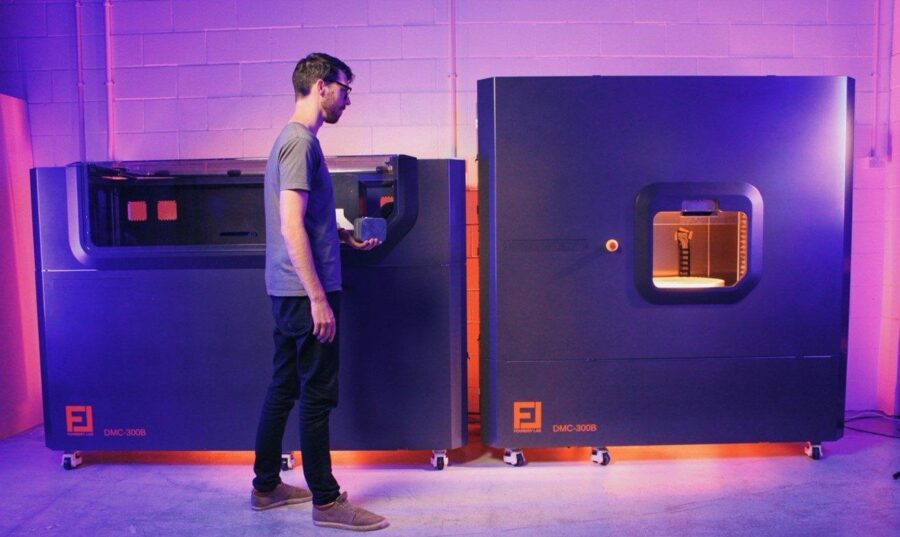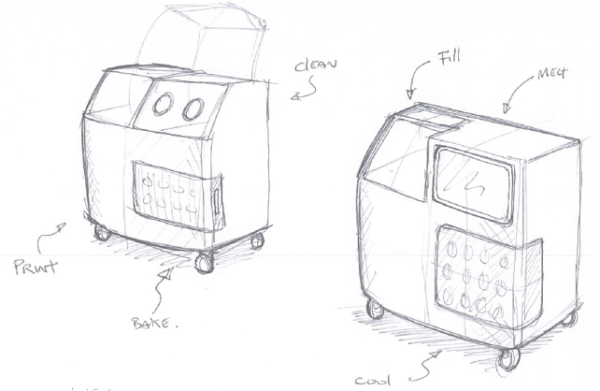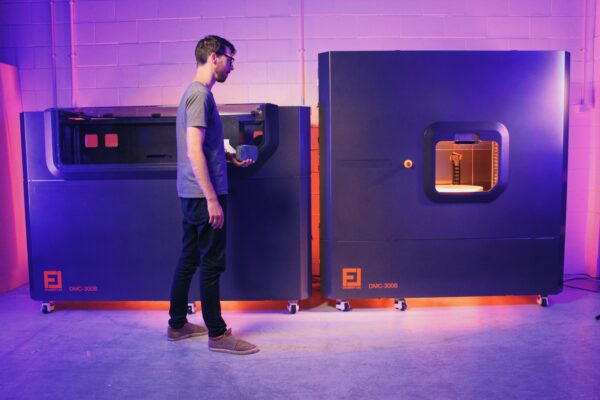Foundry Lab raises US$8 million
Foundry Lab have closed their Series A round. Raising US$8 million from Blackbird, Founders Fund, Promus Ventures, GD1, Icehouse Ventures and K1W1 – as well as WNT Ventures Group.
The company is based in Petone and founded by David Moodie - one of the nicest guys in tech - and we can’t think of anyone more deserving of such high calibre investors.
How did they get to this point? In early 2018 David showed us a metal bracket he had made using his “digital metal casting” process. It was hacked together using begged and borrowed equipment and materials. In spite of doing a bunch of things that really shouldn’t have worked… his technique did work, and worked well. David had demonstrated proof of concept from a lived pain point – an ideal position to come talk to an early-stage deep tech investor like WNT.
Since then, the delivery by David and his wonderful team has been nothing short of amazing.
As part of the capital raise in 2019 Foundry Lab was a sought after company by many investors. David caught the eye of Rocket Lab’s Peter Beck and through him attracted Mike Collet from Promus Ventures as lead investor alongside Scott Nolan from Founders Fund.
The new investors encouraged Foundry Lab to remain in stealth mode to advance technical development and further their already strong competitive advantage. Without being able to give customers a product to trial they had little more than an advanced idea with some basic proof points.
Foundry Lab focussed on getting their prototype completed – and I mean focussed!
David built a strong team who could execute in the process, assisted by many supporters including Callaghan Innovation, Autodesk, and I think, every member of the WNT team and Board had a level of involvement in some way.
And Foundry Lab pulled off something outstanding. I love to show the transition of David’s early concept drawings, from this:
to this...
As someone who stayed close to David’s journey along the way, here’s what I’ve observed has worked for them:
Optimism – not blind hope. There’s a big difference and it generally comes from the leader. It creates a belief in the cause and something the team and customers can all get behind. Optimism is typically born from data driven insights from customer interactions.
Execution is everything - the team’s deep commitment and passion has been amazing. They’ve grafted, hustled, and overcome every challenge that’s been thrown in front of them. Dedicate yourself to execution and don’t get distracted by side projects and unnecessary add-ons.
Creative Solutions - Global supply chain issues caused NZ to run out of binder ink with three months lead time to restock. Foundry Lab had a huge potential customer wanting demo parts. Somehow the team found a valuable stash hiding in a research lab somewhere in NZ, convinced the owners to part with it, and got on with delivery. There’s nothing like a deadline for focus and creative solutions.
Listen to advice and make your own decision – seek advice from a range of quality advisers who have done it before and bring different viewpoints, then compile this and make your own decision. This doesn’t mean just do what you want, but be data driven in your approach. It’s your all and your company, but if all your advisors are saying don’t do something, perhaps it’s time to listen.
From here onwards
At some point in their journey, companies switch their attention from building value in the technology to building value in the company – this can be hard for technical founders who find themselves in the CEO role. Being surrounded by a strong board like Foundry Lab’s helps a lot and bringing in deeply experienced senior team members is critical to the next stage of growth. There is a labour shortage out there, but it helps if you have a huge plan and a passionate leader who looks after their team.
Even with the company’s progress Foundry Lab is still at a very early stage. They have delivered on major technical hurdles and are now transitioning to delivering on commercial outcomes – building a prototype in stealth is different from building your commercial ready machine with your competitors aware of what you are doing. The US$8 million means they can run faster and harder but this is a race with no finish line. Passion, dedication and execution is still key.
Foundry Lab has the potential to be a great New Zealand success story - and in many respects already is - and we’re proud to have played a small part in their journey from garage to greatness!
Do you have a technology or company that needs funding and support? We are looking for innovative, pre-revenue companies with strong intellectual property and global potential.


